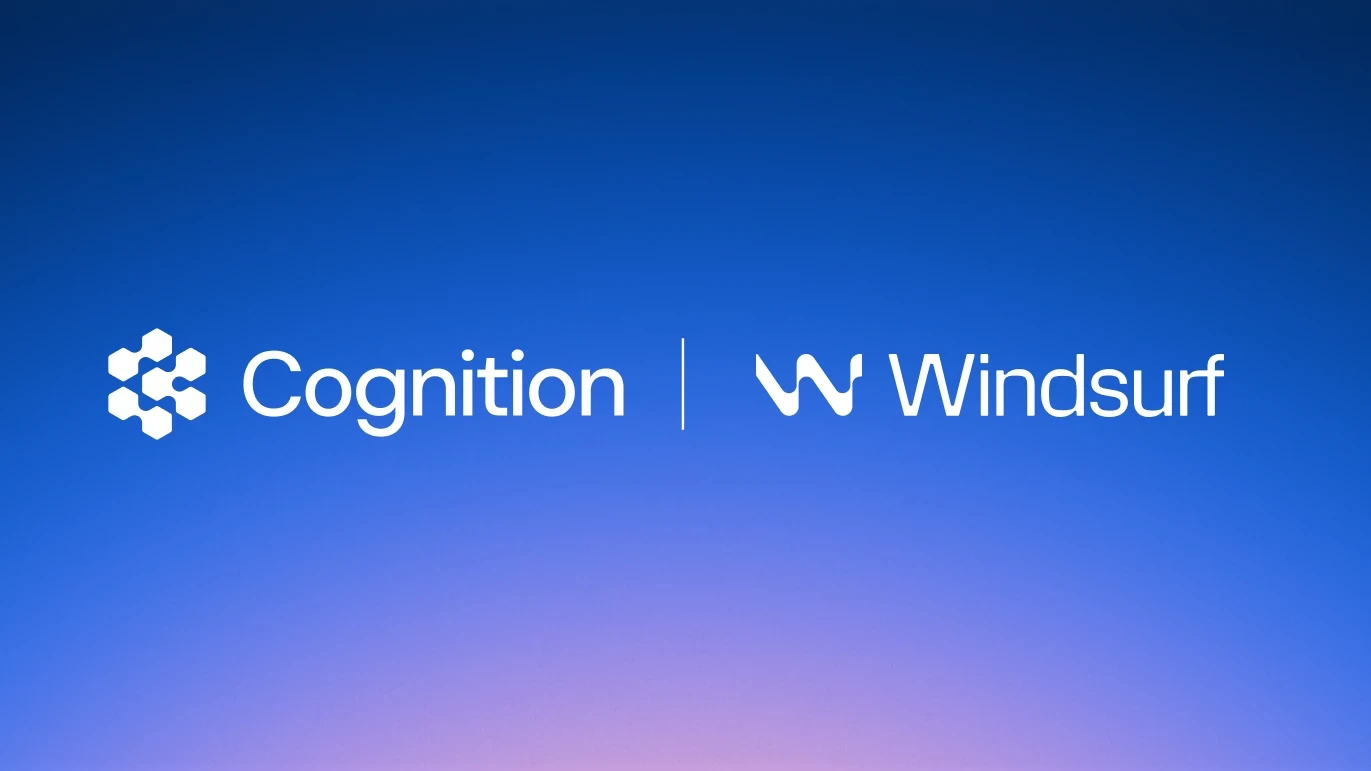Cognition Company, Buys AI Coding Startup, Windsurf
Cognition, the startup that developed the ubiquitous AI coding agent Devin, has disclosed in a blog post on July 14, that it has executed a definitive agreement to acquire Windsurf, an AI coding startup.
In a $2.4 billion reverse-acquihire that left a significant portion of the 250-person Windsurf team behind, Google lured away the CEO Varun Mohan, co-founder Douglas Chen, and research executives.
The announcement was made just days ago. Just hours after OpenAI’s $3 billion offer to acquire Windsurf expired, Google’s agreement was finalized, allowing the AI coding startup to investigate alternative alternatives.
The current hysteria surrounding Windsurf is a new high point in the ferocious competition to create AI coding tools, particularly the AI-powered integrated development environments (IDEs) that Cursor and Windsurf provide.
Cursor’s annualized recurring revenue (ARR) has reached $500 million as a result of the significant boom in the AI-powered IDEs industry in recent months.
Despite the fact that Windsurf’s business is smaller than Cursor’s, it has experienced significant growth in the past year, which has piqued the interest of numerous larger companies.
In a LinkedIn post, Jeff Wang, the former director of business at Windsurf, described the past 72 hours as the most eventful of his career. Wang was appointed interim CEO of the startup after Google hired the startup’s executives.
“To our new colleagues at Cognition, we at Windsurf are ecstatic to be a part of a team that is dedicated to our users, shares our vision, and, most importantly, upholds our values.”
Cognition has announced that it will acquire Windsurf’s intellectual property and product, which includes its AI-powered IDE, as well as all of the employees who were not recruited by Google.
The price at which Cognition acquired Windsurf was not disclosed; however, the company reported that Windsurf’s annualized revenue (ARR) exceeded $82 million, with enterprise ARR increasing by twofold on a quarterly basis.
According to Cognition, Windsurf’s user base consisted of “hundreds of thousands” of daily active users and at least 350 enterprise customers.
Windsurf’s team will persist in developing its AI-powered IDE in the immediate future, while Cognition is developing its AI coding agent, Devin, according to a press release from the companies.
Cognition has stated that it will eventually incorporate Windsurf’s IP and capabilities into its own products.
In April, TechCrunch reported that Windsurf’s annualized revenue (ARR) had reached $100 million at one point.
However, in June, Anthropic, which provides some of the most popular AI models for coding tasks, restricted Windsurf’s direct access to its Claude AI models.
Anthropic co-founder Jared Kaplan attributed the decision to rumors that OpenAI, its largest competitor, was in the process of acquiring Windsurf.
In response to the incident, numerous Windsurf consumers informed TechCrunch that they had migrated to alternative services that provided Claude AI models, including Cursor.
Windsurf will now have complete access to Claude AI models once again, as Cognition notes in its press release.
The Information reported over the weekend that Windsurf employees who had joined within the past year did not receive a compensation in Google’s billion-dollar reverse-acquihire.
This led to numerous social media users ridiculing the agreement, which appeared to be primarily advantageous to the startup’s investors and executives.
In a post on X, Cognition President Russell Kaplan stated that the Windsurf acquisition was genuinely completed over the weekend, just hours after the Google deal was disclosed.
He observed that the initial contact was initiated after 5 p.m. on Friday, and that an agreement was executed on Monday morning.
I am ecstatic to announce that Windsurf is being acquired by Cognition. It has been an incredibly hectic weekend, from the initial contact after 5 p.m. on Friday to the signing of a definitive agreement to this morning. There is an abundance of construction to be done! https://t.co/UxwOG3QHVg — Russell Kaplan (@russelljkaplan) July 14, 2025
In a blog post, Cognition reports that all Windsurf employees will be financially involved in this agreement and will have their vesting deadlines waived for their work to date.
Cognition may have a turbocharged startup that can compete with AI coding titans such as OpenAI, Anthropic, and Cursor with the addition of Windsurf’s talent and IP.
Cognition reportedly engaged in discussions to raise hundreds of millions of dollars at a $4 billion valuation in March.
It is uncertain whether the round has concluded; however, Cognition may require such a war chest to remain competitive in the AI coding sector.
Devin, a fully-fledged AI coding agent, was introduced by Cognition, one of the first AI startups to do so. Devin was designed to automate tasks in a manner similar to that of a novice software engineer, rather than merely assisting with them.
This was a significantly more daring approach than Cursor and Windsurf, which provided developers with user-friendly environments to access AI tools.
Nevertheless, Devin’s AI agent technology was likely ahead of its time, as early evaluations revealed that Devin made errors.
That may no longer be the case. Cursor and Windsurf have started providing more agentic AI products in recent months, which are beginning to resemble the offerings of Cognition.
Cursor CEO Michael Truell recently stated in an interview that he is confident that AI reasoning models are progressing sufficiently to render coding agents viable. He anticipates that 20% of coding workflows will be processed by agents by 2026.
Now, Cognition has the ability to provide an AI-powered IDE and AI coding agents, which may enhance its value proposition.
Additionally, Cognition secured a significant client in the Wall Street titan, Goldman Sachs, earlier this week.
It appears that Cognition has become a more significant competitor in the AI coding space as a result of the acquisition of Windsurf.
news via inbox
Get the latest updates delivered straight to your inbox. Subscribe now!




